- VisitSupport Happy HollowDONATE TODAYExploreSupport Happy HollowDONATE TODAYLearnSupport Happy HollowDONATE TODAYSupport
-
Today's Hours: 10:00 am to 5:00 pm
Happy Hollow Blog
It’s a beautiful day in the neighborhood
May 31, 2019
They high-fived Danny the Dragon. They rode the Pacific Fruit Express roller coaster, the Frog Hopper and, of course, the carousel. They were wowed by up-close visits with the animals and even enjoyed a few raindrops.
This time, the neighborhood kids saw Happy Hollow Park & Zoo from the inside.
On a weekday in May, the Happy Hollow Foundation hosted 128 second and third-graders from Lowell Elementary, a school in downtown San Jose that receives federal funding as a designated Title I school. It was the first step for the foundation in an ambitious new effort to welcome children and parents who otherwise might not get to experience this community treasure.
The foundation — with the aid of a generous donor — paid for the entire day. That included park admission for more than 150 people (including teachers and chaperones) and bus transportation, and students attended a fun, interactive class with Happy Hollow’s education team. Each child also received a take-home bag that included a National Geographic book and a coupon to bring a family of four back to the park for just $5.
When they arrived, kids excitedly sprinted across the bridge from the parking lot. One was asked if he had ever been to Happy Hollow. “No, and I live right there!” he said, pointing to a nearby apartment building.

Of 128 visiting students, 37 percent — nearly 50 children — said they had never attended the park, which is a staple of childhood for so many families throughout Silicon Valley. David Hernandez, a teacher at Lowell, sees the dichotomy throughout the school. The cost for a family of four to attend the park is normally $51. At Lowell, 84 percent of students qualify for free and reduced lunch, far above the 40 percent threshold for Title I status.
“In my class, I have about five students who live around the block from Happy Hollow, and they’ve never been there,” Hernandez said. “It’s such a simple trip we take for granted that we can take our family there, but they never get to go. The family has a choice — the park or food.”
One parent chaperone reflected as she watched her group run through the park: “These kids are amazing. They are poor kids. But they are amazing. Look how happy they are. It is on us to lift them up, and this gives them that spark, that advantage that they need.”
After a warm greeting from park characters Captain Conservation and Danny the Dragon, the children split into four segments to attend the education department’s Animal Groups class. In the Learning Lodge, they met representatives from across the world and the animal kingdom — a bird, reptile, insect and mammal, some from the rainforest and others from the African plain. To simulate those animals, student volunteers wore feathers, tails and goggles (which drew giggles). After the students learned about the different animals, they were rewarded by meeting a few up close. Whether it was an eclectus parrot flying towards them or a cute balled-up hedgehog, the children’s smiles were ear-to-ear.
Days later, Hernandez saw the National Geographic books all over the school. That’s a small step in a big direction. Research shows the presence of books in a home can greatly improve a child’s educational achievement; according to the Hispanic Foundation’s 2018 Silicon Valley Report Card, two-thirds of Latino survey respondents have fewer than 50 books in the home, and 37 percent have fewer than 25 books. The San Jose Public Library donated the books for this trip.
The idea for the funded field trips began with Amy Pizarro, who joined the organization in 2018 as Happy Hollow Foundation’s executive director. The park and zoo offers field trips to those schools that can pay for it, and the education team conducts classes on site at local schools, with the foundation providing funding for visits to Title I schools.
But for many schools in the core of San Jose, visiting Happy Hollow is difficult.
Pizarro and the foundation have embarked on a bold plan to start opening the gates to those kids, with an initial focus on the nine Title I elementary schools within 2 miles of Happy Hollow. With a successful pilot day behind them, the foundation will now look for funding to offer more schools the opportunity for free admission and bus transportation, plus the coupon for children to return with their families.
The board was so excited about bringing underserved students that it approved the plan before funding was secured. “We want the park and zoo to be available to everyone in our community,” said board president Vikki Bowes-Mok. “And this is just one way we can share Happy Hollow’s magic.”
It was a scene worth repeating.
